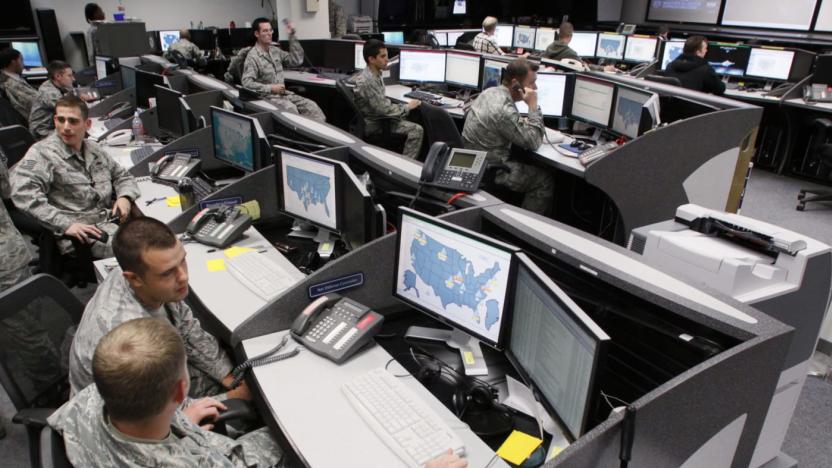UsCyberCommand
Latest

The Pentagon isn't sure who'd be in charge during a cyberattack
According to a report published Monday by the Government Accountability Office, the Department of Defense lacks clear rules on who would be in charge during a national-level cyberattack. It could be the US Northern Command, which coordinates DoD homeland defense efforts with civil authorities, or it could be US Cyber Command, which handles the government's cyber security forces -- but nobody's quite sure who should handle what, or when.

US Cyber Command completes major cyber attack simulation, seems pleased with the results
The US Cyber Command is barely out of its infancy, but it's already crossed one milestone off its to-do list, with the successful completion of its first major test run. The exercise, known as Cyber Flag, was carried out over the course of a single week at Nellis Air Force Base in Nevada, where some 300 experts put their defense skills to the test. According to Col. Rivers J. Johnson, the participants were divided into two teams: "good guys," and "bad guys." The latter were delegated with the task of infiltrating the Cyber Command's networks, while the former were charged with defending the mock cyberattack and keeping the government's VPN free of malware. The idea, according to the agency, was to simulate a real-world attack on the Department of Defense, in order to better evaluate the Command's acumen. "There were a variety of scenarios based on what we think an adversary would do in real world events and real world time," Johnson explained. "It was a great exercise." The Colonel acknowledged that the good guys weren't able to defend against all of the attacks, but pointed out that the vast majority were recognized and mitigated "in a timely manner." All told, Cyber Flag was deemed a success, with NSA Director and Cyber Command chief Gen. Keith Alexander adding that it "exceeded" his own expectations.

US Cyber Command achieves 'full operational capability,' international cyberbullies be warned
A sword, a lightning bolt, a key, a globe, and a bird. These are the symbols of your United States Cyber Command, which you'll be proud to know has "achieved full operational capability." FOC is when a military organization basically has what it needs and knows how to use it, but we're guessing our new cyber-commandos will be a little nervous at first, like a prom date just presented with a room key, or a Modern Warfare player with a new weapon attachment. Surely the USCC will get into its stride real soon, enabling it to "operate and defend our networks effectively." You know what that means: feel free to be a little extra offensive when trolling on foreign soil today. Uncle Sam has your back.


